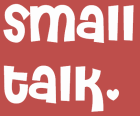Could your baby have autism?
Children can be accurately diagnosed from 18 months of age. If you think your child might be autistic, DON'T ‘WAIT AND SEE’. Recent research shows that children with autism who are offered intensive quality intervention (a natural developmental/ behavioural approach, eg. the Early Start Denver Model, Hanen, Parent-Child Interaction, Floor Time) at or before two years of age are MUCH more likely to develop social skills, stronger spoken language and have a significantly higher IQ than children who start therapy later. Children receiving quality early intervention will see life-long benefits. Therapy enhances your child’s capacity for learning, friendships and opportunities.
Early signs of autism
If you answer “yes” to some of the following signs, we strongly recommend you check further using this free app. If you are still questioning whether your child may have autism, take action. Ask your GP or Plunket nurse to arrange immediate referral to a paediatrician and speech-language therapist (you may be eligible for free speech therapy from public funded services. Waiting lists may be long, so get in early. Consider private speech therapy. If your child does have autism, and you start quality private therapy while your child is still very young, they will experience much greater long-term benefits. Please don’t wait… It makes all the difference.
3-6 months
For further information about social communication stages, see babynavigator.com/scgc/
- Doesn’t respond to loud sounds or watch things as they move by two months
- Lack of eye contact by 2 to 3 months
Most babies are born with an innate interest in the human face, particularly their parents and family. - No social smiling. Typically a baby will reflexively smile back if you smile at them starting as early as the first month, but certainly by the age of 3 months. As a test you can try looking at your baby with a neutral face, and then break into a wide smile that you hold for a few seconds. You can try three or four times. A typically developing infant should smile back most of the time.
- By 4 months, doesn’t try to get things in reach, respond to sounds around him, make vowel sounds (“ah,” “eh,” “oh”), or laugh or squeal. May not pay attention to caregivers.
- No social anticipation or Peek-A-Boo. Neurologically typical children will lift their arms in anticipation of being picked up, or start laughing (or crying) in anticipation of games like Peek-a-boo.
- Few or no big smiles and laughs, or other warm, joyful and engaging expressions.
- Continues to have limited or no eye contact.
- Poor visual tracking. Take a brightly coloured toy and track it back and forth slowly in front of your baby. Does your child easily follow a brightly coloured toy with their eyes? Or do they seem to lose interest in it or disengage quickly?
- Not responding to their name
- Lack of social babbling. Typically babies love to practice babbling on the road to their first words. Babies with autism may be lacking verbal noises, be slow to verbalize, or suddenly stop verbalizing after a point. Carers may notice lack of back-and-forth sharing of sounds, play and facial expressions
- Fixation on unusual objects, eg. fans, parts of toys (but not the toy), floor or ceiling patterns.
- Not following your gaze when you look away from him, and not looking where you point
- Not crying when his caregiver leaves him, and may not seem to recognize familiar people
- Little or no back-and-forth gestures such as pointing, showing, reaching or waving
- Little or no response to name.
- By 12 to 14 months hasn't said a single word, and by 14 months he isn't pointing to show interest or waving
- Doesn’t search for things he sees you hide, or point to objects of interest. Loses skills he once had.
- By 16 to 18 months your baby should be playing simple pretend games
- By 18 months, doesn’t point to objects of interest, copy others, gain new words, use at least six words, or notice or mind when a caregiver leaves or returns. Doesn’t know what to do with familiar objects (like a spoon or a brush). Loses skills.
- Very few or no meaningful, two-word phrases (not including imitating or repeating)
- Doesn’t use two-word phrases (“drink milk”), copy actions or words, follow simple instructions, or walk steadily. Loses skills.
- Little interest in pretend play (for example, preferring to line up cars or spin the wheels, rather than driving them around)
- Loss of previously acquired speech, babbling or social skills
- Avoidance of eye contact
- Prefers to play alone, and may appear to be in their own world
- Doesn’t copy others, and ignores ‘hello’ and ‘bye’
- Difficulty understanding other people’s feelings
- Doesn’t respond to peek-a-boo or other people games
- Doesn’t show toys/objects to other for shared enjoyment
- May have a very strong attachment to unusual items
- Doesn’t smile when smiled at
- Doesn’t recognise or respond to another person’s happiness or distress as much as peers do
- Doesn’t want to be picked up or cuddled
- Delayed language development. They may use language in an unusual way (eg. repeating songs or phrases from videos)
- They may seem not to hear, even when a hearing test confirms hearing is fine
- Persistent repetition of words or phrases (echolalia)
- Struggle with even minor changes in routine or surroundings
- Restricted interests
- Repetitive behaviours (flapping, rocking, spinning, etc.). They may get stuck doing the same thing over and over
- Unusual and intense reactions to sounds, smells, tastes, textures, lights and/or colours
- Some children with autism can count, say the alphabet and perform other rote-learnt language skills. This is common in both children with autism and typically developing children.
For further information about social communication stages, see babynavigator.com/scgc/
